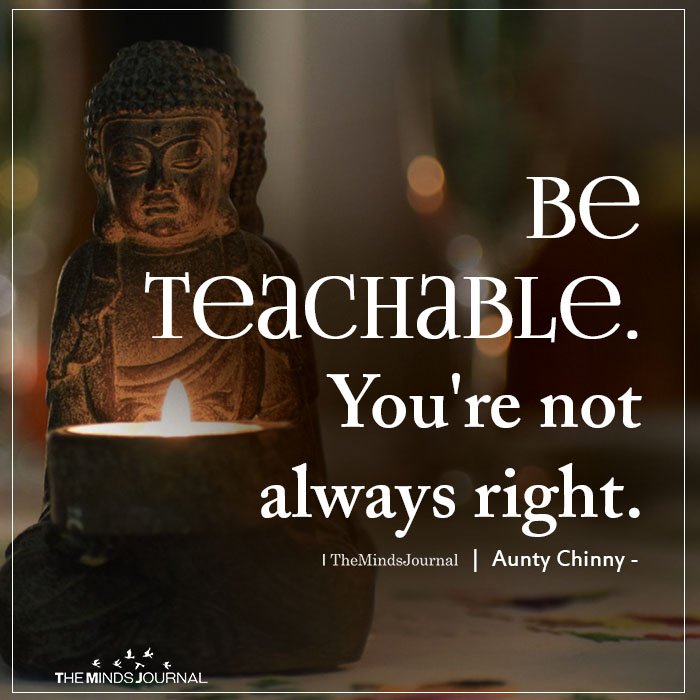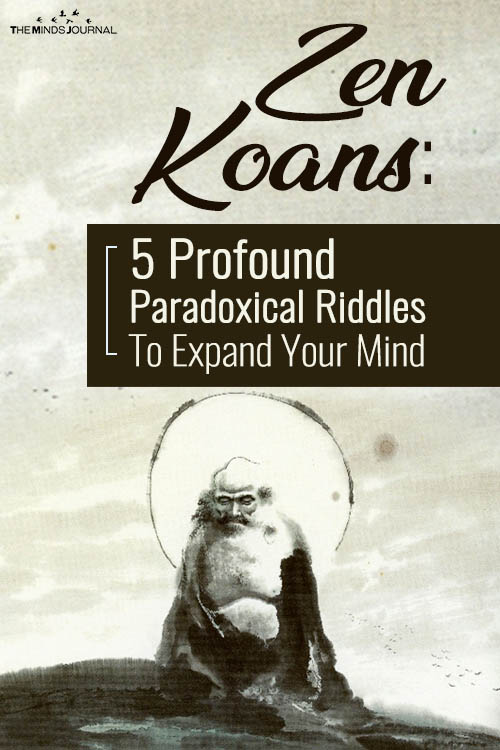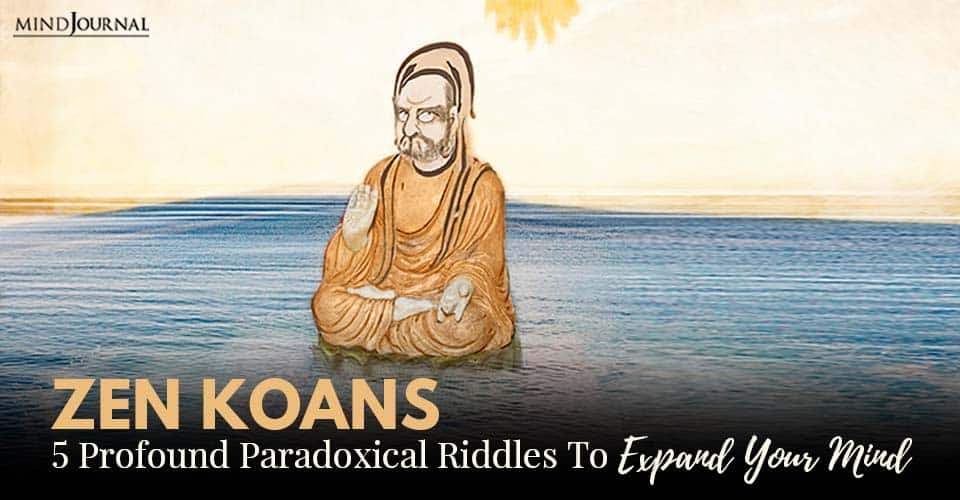Zen Koans, stories and phrases have been used by Zen masters for ages to teach and test their students and help them understand the true nature of life.
The paradoxical riddles and stories are usually rather puzzling & may appear ambiguous and silly at first, but once you think about these Koans and try to decipher their hidden meanings, you will emerge as a more self-aware and wiser person.
What are Zen Koans?
Zen Buddhist Koans are paradoxical riddles and puzzles primarily used in Zen Buddhism as meditation training. These are small stories, phrases, conversations, and statements that challenge and transform conventional thinking and change how you live in the world by provoking an insight. Zen Buddhists use Koans during meditation to exhaust the egoic and analytic mind and uncover the intuitive ‘no-mind’, which is a state of pure consciousness & bliss.
Koans are not about finding answers, but about unraveling the greater truths about ourselves and the world. It allows us to realize that our intellections, beliefs, and impressions can never offer us a fully satisfying answer. Zen Koans are a tool that delves into the mind of a meditator to challenge and break their rigid thinking.

Utilized by Zen masters for centuries, these Koans can help students learn a lot about Zen Buddhism once they figure out their interpretations and meanings. However, it may often be mentally and intellectually exhausting for a student to decipher the true meaning of a Koan and understand it the way it is meant to be, realized through the spirit.
Koans are not meant to provide any explanations or answers. They simply show you the way.
Related: 100 Best Zen Sayings And Proverbs That Will Make You Feel Peaceful
5 Zen Koans to challenge your mind
Here are 5 Zen Buddhist Koans that can help you unravel your own mind and help you progress in your spiritual journey.
Without further ado, experience the mind-altering effect of koans yourself.
1. Teaching the ultimate.
In early times in Japan, bamboo-and-paper lanterns were used with candles inside. A blind man, visiting a friend one night, was offered a lantern to carry home with him. “I do not need a lantern,” he said. “Darkness or light is all the same to me.”
“I know you do not need a lantern to find your way,” his friend replied, “but if you don’t have one, someone else may run into you. So you must take it.”
The blind man started off with the lantern and before he had walked very far someone ran squarely into him. “Look out where you are going!” he exclaimed to the stranger. “Can’t you see this lantern?”
“Your candle has burned out, brother,” replied the stranger.
Futility and absurdity are ingrained into the very essence of life. In life, we will face several moments where we will be judged, criticized, blamed, and accused whether we do something or not. Often the opportunity is disguised as challenges and struggles, good luck is disguised by bad luck. And sometimes it’s quite the opposite. However, sometimes bad luck is just that, bad luck. Sometimes we fall and learn to stand back up again, while other times we fall and just get injured.
Such is life and the human experience. It can be profoundly meaningful and completely meaningless at the same time. Life is imperfect and not everything has to make sense all the time. Sometimes, we laugh. Sometimes, we cry. But that is the beauty of life.
Between developing an impressive sense of humor through life’s struggles and the pain of learning valuable life lessons, life shows us how absurd and futile it can often be. And tears and laughter can be the perfect tools that allow us to navigate through this absurdity. The objective is to experience life without allowing all the struggles and challenges to prevent us from living our best life.
2. Muddy road
Tanzan and Ekido, two monks, were once traveling together down a muddy road. Heavy rain was still falling. Coming around a bend, they met a lovely girl in a silk kimono and sash, unable to cross the intersection.
“Come on, girl,” said Tanzan at once. Lifting her in his arms, he carried her over the mud.
Ekido did not speak again until that night when they reached a lodging temple. Then he no longer could restrain himself. “We monks don’t go near females,” he told Tanzan, “especially not young and lovely ones. It is dangerous. Why did you do that?”
“I left the girl there,” said Tanzan. “Are you still carrying her?”

This koan teaches us what we perceive as right and wrong are based on our perception of the world and solely exist inside our minds. As Ekido is busy judging the actions Tanzan and determining whether what he did is right or wrong, Ekido becomes trapped in the static past. Being a victim of his past, Ekido is unable to enjoy the beauty of the dynamic and fleeting present moment.
The human condition is not definite or decided and life is unreasonably situational. We follow certain rules and laws in life which we believe can help us live better and allow us to segregate wrongdoings from right doings. Sometimes we can do wrong by doing the right thing, while at other times we can do right by doing what is conventionally wrong. Morality is a muddy path just like the one these two monks were walking on.
3. A cup of tea
Nan-in, a Japanese master during the Meiji era (1868-1912), received a university professor who came to inquire about Zen. Nan-in served tea. He poured his visitor’s cup full, and then kept on pouring.
The professor watched the overflow until he no longer could restrain himself. “It is overfull. No more will go in!”
“Like this cup,” Nan-in said, “you are full of your own opinions and speculations. How can I show you Zen unless you first empty your cup?”
This is a popular Koan that focuses on the value of learning, unlearning, and relearning. It challenges us to be sharp and free ourselves from our rigid thinking. The idea of the teacup being overflowing is a strong reference that reminds us to let go of things so that we can make space for new things and experiences to flow into our lives.
However, the reality is that it is nearly impossible to forget what you have learned. And that is where the paradox lies. What we learn will always be retained in some capacity, like in your subconscious mind and our muscle memory. When you pour out what you have learned from the ‘cup of your mind’, you are actually letting go of the attachment of your ego to your learning and memory. This challenges you to release rigid views, opinions, and expectations.
Related: Emotional Muscle Memory: How To Release Painful Emotions Trapped In Your Body
4. A parable
Buddha told a parable in sutra:
A man traveling across a field encountered a tiger. He fled the tiger after him. Coming to a precipice, he caught hold of the root of a wild vine and swung himself down over the edge. The tiger sniffed at him from above. Trembling, the man looked down to where, far below, another tiger was waiting to eat him. Only the vine sustained him.
Two mice, one white and one black, little by little started to gnaw away the vine. The man saw a luscious strawberry near him. Grasping the vine with one hand, he plucked the strawberry with the other. How sweet it tasted!
There are many Zen Koans on living in the moment, but this is perhaps the most powerful koan on mindfulness. Death is an intrinsic part of life. What has a beginning, must have an end. We are mortal beings and death is the reality that each and every one of us will have to face. Regardless of how much effort you put in, there will always be a void of nothingness behind you countered only by an even larger expanse of infinity ahead.
So how can we be happy, when we know that pain, sorrow, and death are inevitable? The answer lies in the present moment. It is about bringing your awareness to the present. It is about being curious about this present moment. Presence, awareness, and curiosity is the key to overcoming entropy and experience joy despite the truth of death.
5. Buddha’s Zen
Buddha said:
“I consider the positions of kings and rulers as that of dust motes. I observe treasures of gold and gems as so many bricks and pebbles. I look upon the finest silken robes as tattered rags. I see myriad worlds of the universe as small seeds of fruit, and the greatest lake in India as a drop of oil on my foot.”
“I perceive the teachings of the world to be the illusion of magicians. I discern the highest conception of emancipation as a golden brocade in a dream, and view the holy path of the illuminated ones as flowers appearing in one’s eyes. I see meditation as a pillar of a mountain, Nirvana as a nightmare of daytime. I look upon the judgment of right and wrong as the serpentine dance of a dragon, and the rise and fall of beliefs as but traces left by the four seasons.”
One of the biggest realizations we can have is that everything in life is fleeting. Nothing lasts forever as everything is collapsing one moment at a time. Everything in the great cosmos is comprised of the same imperfectly perfect matter. Permanence is nothing but an illusion of our minds and our culture. We can become aware of this fact through imaginative indifference and intellectual brutality.
Buddha, in the quote above, focuses on crumbling fixed thinking, breaking the concept of power and hierarchy, and finding flaws in perceived beliefs with the heat of his wise words to free our thinking and show us the way to feed our souls. Everything comes and goes without even leaving a trace. What rises, eventually falls. What grows, gradually decays. And that is the true essence of life.
Puzzle your way to bliss
Did these Koans transform your mind? What life lesson did you learn from these parables? Could you relate to some or all of these Koans?
Zen Koans are a puzzle of words that allows the mind to unravel itself. Koans are paradoxical and ambiguous without any clear-cut right or wrong answers. These simply help our minds to expand through imagination and mindfulness to achieve a state of ‘no-minding’.
Related: 7 Zen Stories That Will Make You View Things Differently
Here is an interesting video on Zen Buddhist Koans that you may find enlightening:










Leave a Reply